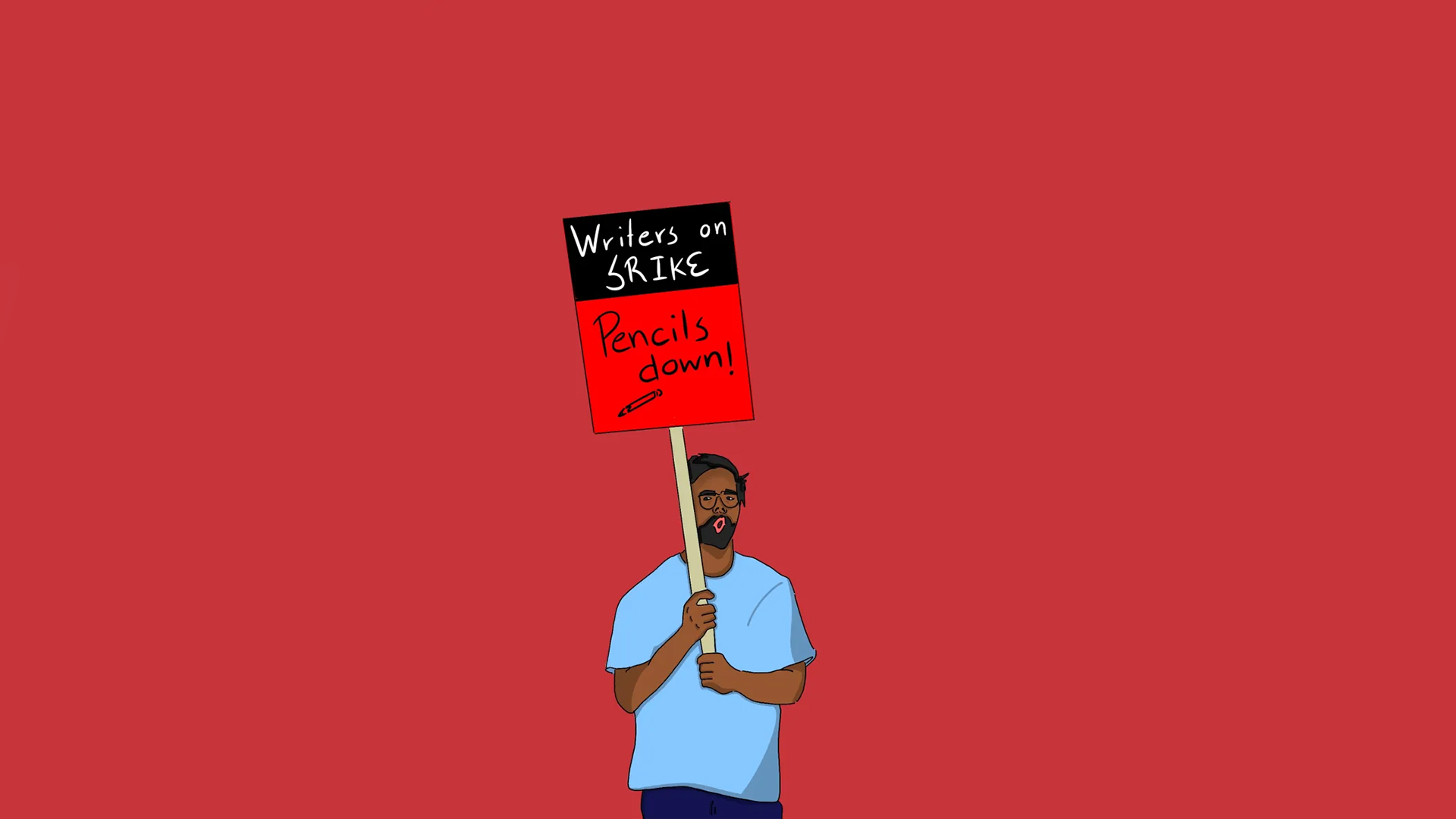A timeline of events related to the Hollywood strikes
The 2023 strikes by SAG-AFTRA and the Writers Guild of America have brought the topic of mistreatment in the entertainment industry to the forefront.
The strikes began on May 2, 2023 when the Writers Guild of America (WGA), a professional association representing thousands of screenwriters, and the Alliance of Motion Picture Television Producers (AMPTP) failed to reach a mutual agreement regarding compensation, residuals, and the rights of writers.
On some of the biggest shows in Hollywood history, some writers received residual checks of just a few cents, or none at all. Suits has become the first show to ever cross 3 billion minutes streamed across Netflix and Peacock for several weeks in a row. However, their writers have been paid near nothing by way of residuals. The transition to streaming services has led to lower pay rates for writers and a decrease in the quality of working conditions.
Artificial intelligence (AI) technology raises further concerns for already struggling writers. The use of AI could cause studios to rely less on the natural creative talents of human writers, as studios would not have to pay AI to write their scripts.
Studios are also beginning to use AI technology to store and replicate the faces and bodies of background actors, to be re-used in other movies without the presence of the actual human actors. Unions are asking for AI permission guidelines and fair compensation from studios that are planning to replicate the likeness of background actors for their movies. The actors are hoping to obtain a labour contract, get better residuals, and prohibit the use of AI to replicate the likeness of actors.
The Screen Actors Guild and American Federation of Television and Radio Artists (SAG-AFTRA) joined the strikes after their contracts with the AMPTP expired, marking the beginning of a positive shift towards treating writers, actors, and all other workers in Hollywood as humans deserving of compensation and appreciation.
With the writer’s strike now over, here’s a recap of what happened and continues to unfold.
TIMELINE
March 7: The WGA announces that around 99 per cent of their members have voted in favour of wanting better compensation, residuals, and protection against the use of AI technology for Hollywood productions.
March 20: WGA and AMPTP negotiations begin. WGA present their demands for the
new contract.
April 17: In a vote of 97.9 per cent, WAG members agree to strike if their upcoming contract negotiations with AMPTP fall through.
May 1: Expiration date of contract between WGA and AMPTP. Both parties fail to reach a mutual agreement.
May 2: WGA strike begins at 12:01 a.m., immediately affecting late night talk shows and sketch comedy show Saturday Night Live.
May 3: WGA hosts a solidarity rally with multiple entertainment unions.
May 10: Netflix makes a last-minute decision to make its in-person upfront presentation to advertisers a virtual event.
May 15: WGA says they will not picket the Tony Awards, but the award show must proceed without writers.
June 5: Ninety-eight per cent of SAG-AFTRA members agree to join the WGA strike if their contract renewal with AMPTP does not meet their new contract demands by June 30.
June 23: Variety reports that the Directors Guild of America and AMPTP agree to a contract renewal, containing benefits such as better residuals, higher wages, and protection against the use of AI technology.
June 30: Originally set to expire on this day, the TV animation contract between AMPTP and SAG-AFTRA is extended to July 30 amid wages and working conditions meetings.
July 11: Deadline releases an article claiming a Hollywood studio executive said: “The endgame is to allow things to drag on until union members start losing their
apartments and losing their houses.” This quote causes outrage, increasing the support of the WGA strike against AMPTP.
July 14: SAG-AFTRA strike begins.
August 4: WGA representatives meet with studios to reach an understanding regarding wages and the use of AI technology, but to no avail.
September 6: Warner Bros. TV suspends deals with writers Mindy Kaling, J.J. Abrams, Greg Berlanti, and Bill Lawrence.
September 7: The Toronto International Film Festival (TIFF) commences. Many actors will not be walking the TIFF red carpet in support of the strike, unless specifically granted by the SAG-AFTRA union through the use of waivers.
September 24: After nearly five months of striking across Los Angeles, and the paused TV and film productions that came out of it, studios, WGA, and AMPTP finally reached a tentative deal. The SAG-AFTRA and AMPTP have yet to reach an agreement.
September 27: The writers’ strike officially ends as the second longest in Hollywood history.
October 2: Negotiators for SAG-AFTRA and AMPTP restart their talks.

